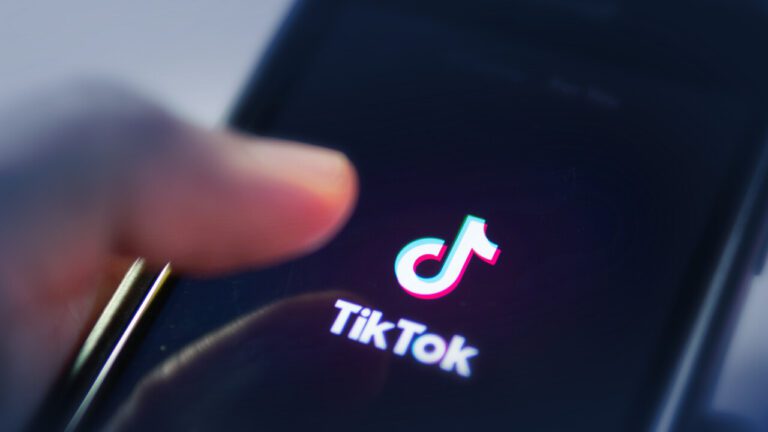
Articles
Stay in the loop with our latest news—from recent wins to ongoing cases and awards.
Nursing Home Neglect: When Care Fails
For many families, placing a loved one in a nursing home is one of the most difficult decisions they’ll ever make. It’s a choice rooted…
Aflac Cyberattack: What You Need to Know
Aflac, one of the largest providers of supplemental insurance in the United States, has recently fallen victim to a cyberattack that may have exposed sensitive…
Air India Crash Investigation
On June 12, 2025, tragedy struck just moments after takeoff from Ahmedabad, India, when an Air India Boeing 787-8 Dreamliner bound for London Gatwick crashed…
Life-Altering Accident: $2.475 Million Settlement Secured For Factory Worker
Kendall Dunson recently secured a $2.475 million settlement for our client, Aretia McLean. Aretia, a dedicated line worker at a Georgia food processing plant, suffered…
Resistance & Resilience: Talcum Powder Lawsuits Against J&J
A recent interview sheds light on the various controversies that Johnson & Johnson has faced over the years. From product safety issues to legal battles,…
Defect Deal: $175 Million GM Settlement Gets Preliminary Approval
After years of legal battles, car buyers are one step closer to receiving compensation. A California federal judge has granted preliminary approval for a $150…
$2.99 Million Commercial Truck Crash Settlement Secured
Road to recovery- Ken Wilson in our Atlanta office recently secured a $2,990,000 settlement for our clients in a highly contested motor vehicle collision involving…
$110 Million Settlement- The Largest in Alabama History
We are thrilled to announce a landmark achievement: the largest personal injury settlement in the history of Alabama, totaling $110 million. Our success is a…
Whistleblower Win: $417 Million Secured in False Claims Act Case
Our whistleblower team, led by Leon Hampton, secured a staggering $417 million judgment in a qui tam case presided over by Judge Madeline Haikala in…
Battling to Protect Consumers from Unlawful Betting Practices in Alabama
High Stakes- We are taking a stand against unlawful betting practices by filing a class action lawsuit against Sweepsteaks Limited, the owner of Stake.us, a…
Camp Lejeune Status Report From Plaintiffs’ Leadership
Below is the April 8, 2025, report on the status of the Camp Lejeune Water Litigation from Plaintiffs’ Leadership Counsel: Dear Counsel and Pro Se…
Alabama AG Files Lawsuit Against TikTok for Targeting Teens
Alabama Attorney General Steve Marshall has filed a lawsuit against TikTok Inc. and its parent company, ByteDance Inc. in Montgomery County. We are proud to…
$2.49 Million Products Liability Settlement
Product Liability Settlement $2.49 Million Product Liability Settlement This household consumer product case, handled by Evan Allen in our Mobile office, was settled in March…
Fatal Flight: Investigating Mississippi Medical Helicopter Crash
On March 11, 2025, a devastating accident claimed the lives of three individuals: Dustin Pope, Jakob Kindt, and Cal Wesolowski. The medical helicopter, operated by…
Fatal Fishing Collision: Justice For Smith Lake Victims
Tournament Tragedy- We are currently investigating the recent boating accident that claimed the lives of three men and injured two others during a Major League…
Paraquat Litigation Progress: Positive For Plaintiffs
We continue to investigate lawsuits for those who have been exposed to Paraquat – a popular herbicide that is not only linked to Parkinson’s Disease…
Fuel Pump Final Approval, Estimated Settlement Value of $172 Million
On March 4, 2025, Judge Josephine Staton of the U.S. District Court for the Central District of California granted final approval to a nationwide settlement…
$4 Million Auto Products Settlement
Product Liability Settlement $4 Million Product Liability Settlement For more than 45 years, the Beasley Allen Law Firm has been committed to “helping those who…
J&J’s Bankruptcy Bid Rejected: A Victory for Talc Claimants
A Texas bankruptcy judge has rejected Johnson & Johnson’s (J&J) third attempt to use Chapter 11 bankruptcy to settle thousands of claims that its talc…
$1.25 Million Meter Malfunction Victory in Phenix City
No more surprises- We recently secured a $1.25 million settlement for Phenix City against Master Meter, Inc. and Empire Pipe and Supply Company after experiencing…
Machinery Mishap: $7.2 Million Settlement Secured
A victory for workplace safety: Kendall Dunson secured a staggering $7.2 million settlement for the family of a Montgomery, Alabama, food processing plant worker who…
Minimal Insurance Coverage to $4.5 Million Tractor-Trailer Settlement
On December 15, 2021, our client, Mr. Martin, experienced a life-altering accident on Interstate 85 caused by a negligent driver with a suspended commercial license….
Unmasking the Hidden Dangers of Ultra-Processed Foods
In today’s fast-paced world, convenience often takes precedence over nutrition. From frozen dinners to prepackaged snacks, ultra-processed foods (UPFs) have become a staple in many…
Lawdragon Recognizes 23 Beasley Allen Attorneys for Excellence in the Legal Community
In 2025, 23 of our firm’s attorneys were honored in four of Lawdragon’s prestigious annual guides: The Lawdragon Green 500 – Leaders in Environmental Law…
























